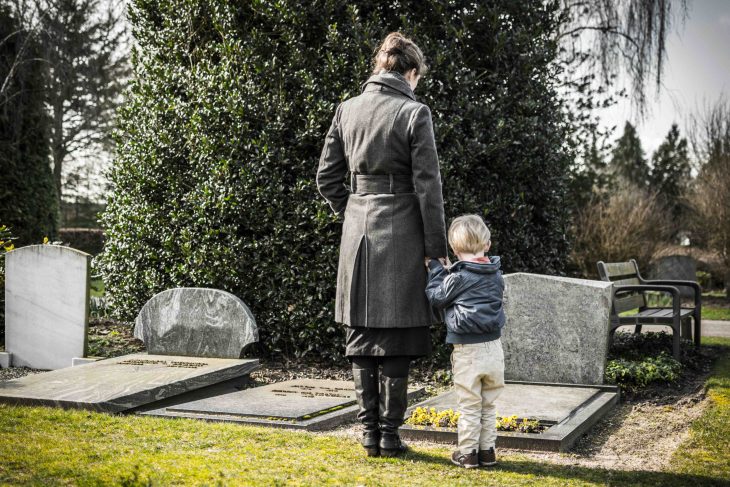
Grief is a profound and universal experience that accompanies loss. Whether it’s the loss of a loved one, a job, a relationship, or a significant life change, grief manifests in various ways. In this article, we delve into 15 facts about grief, shedding light on its complexities and offering insights into the emotional, physical, and psychological aspects of this deeply personal journey. Join us as we explore the dimensions of grief, providing guidance for healing and resilience.
Grief is Unique to Each Individual
Grief is a highly individualized process. Each person’s experience is shaped by their unique circumstances, relationship with the loss, and personal coping mechanisms. There is no right or wrong way to grieve.
Grief Can Manifest in Different Ways
Grief can manifest emotionally, physically, and psychologically. It may involve intense sadness, anger, guilt, confusion, physical pain, changes in appetite, disrupted sleep patterns, and difficulty concentrating.
Grief Has No Set Timeline
The grieving process is not linear and does not follow a specific timeline. It is a journey that unfolds at its own pace. Some may experience intense grief for a shorter period, while others may have a longer process with ebbs and flows.
The Stages of Grief are not Sequential
The widely recognized stages of grief (denial, anger, bargaining, depression, acceptance) are not necessarily experienced in a linear fashion. Individuals may move back and forth between stages or even experience them simultaneously.
Grief Can Bring Unexpected Emotions

Alongside the expected emotions of sadness and pain, grief can bring forth unexpected emotions such as relief, guilt, or even moments of joy. These emotions are natural responses to the complex nature of loss.
Support Networks are Crucial
Having a support network during the grieving process can be immensely helpful. Friends, family, support groups, or mental health professionals can provide a safe space for expression, validation, and understanding.
Grief May Impact Physical Health
Grief can have physical manifestations, including fatigue, headaches, changes in appetite, digestive issues, and weakened immune function. It’s important to prioritize self-care and seek medical attention if needed.
Grief and Coping Mechanisms
Individuals employ different coping mechanisms during the grieving process. These may include talking to loved ones, engaging in creative outlets, seeking therapy, practicing mindfulness, or participating in support groups.
Grief Can Resurface Over Time
Grief is not something that is necessarily “overcome” or resolved completely. It can resurface at different times, triggered by anniversaries, milestones, or reminders of the loss. This is a normal part of the healing process.
Grief’s Impact on Relationships
Grief can affect relationships, both positively and negatively. It may bring people closer together, fostering empathy and understanding. However, it can also create tension and strain, as individuals navigate their grief journeys.
Cultural and Personal Beliefs Influence Grief
Cultural and personal beliefs play a significant role in how individuals experience and express grief. Customs, rituals, and traditions surrounding death and mourning vary across cultures, providing unique frameworks for processing loss.
Children and Grief

Children experience and express grief differently from adults. They may have difficulty articulating their emotions or understanding the concept of death. Providing a safe environment for them to express their feelings is essential.
Grief and Resilience
Grief has the potential to cultivate resilience. Through the process of grieving, individuals can develop inner strength, adaptability, and a deeper appreciation for life. Healing and growth can coexist alongside grief.
Seeking Professional Help
In some cases, professional help may be necessary to navigate the complexities of grief. Therapists, counselors, or grief support specialists can provide guidance, tools, and a safe space for processing emotions.
Healing is Possible
While grief may feel overwhelming and endless, healing is possible. Over time, the intensity of grief can lessen, allowing individuals to find meaning, integrate their loss into their lives, and move forward with a renewed sense of purpose.
Conclusion
In conclusion, grief is a deeply personal and complex journey that accompanies loss. By understanding its multifaceted nature and acknowledging its impact on emotional, physical, and psychological well-being, we can cultivate empathy, compassion, and resilience for ourselves and others.
Frequently Asked Questions (FAQs)
How long does grief typically last?
The duration of grief varies greatly among individuals. There is no standard timeline, and it can be influenced by factors such as the nature of the loss, the support system, and the individual’s coping mechanisms.
Is it normal to still experience grief years after a loss?
Yes, it is normal to continue experiencing grief years after a loss. Grief is a lifelong process, and anniversaries, milestones, or triggers can resurface emotions associated with the loss.
How can I support a grieving loved one?
Show empathy and compassion by offering a listening ear, providing practical assistance, and respecting their unique grieving process. Be patient, understanding, and avoid judgment.
When should I seek professional help for grief?
It may be beneficial to seek professional help if grief significantly impairs daily functioning, persists for an extended period, or if there are thoughts of self-harm or suicide. A mental health professional can provide guidance and support.
Can grief lead to positive growth and transformation?
Yes, grief has the potential to facilitate personal growth and transformation. Through the healing process, individuals can develop resilience, gain a deeper appreciation for life, and find new meaning and purpose.
Was this page helpful?
Our commitment to delivering trustworthy and engaging content is at the heart of what we do. Each fact on our site is contributed by real users like you, bringing a wealth of diverse insights and information. To ensure the highest standards of accuracy and reliability, our dedicated editors meticulously review each submission. This process guarantees that the facts we share are not only fascinating but also credible. Trust in our commitment to quality and authenticity as you explore and learn with us.


